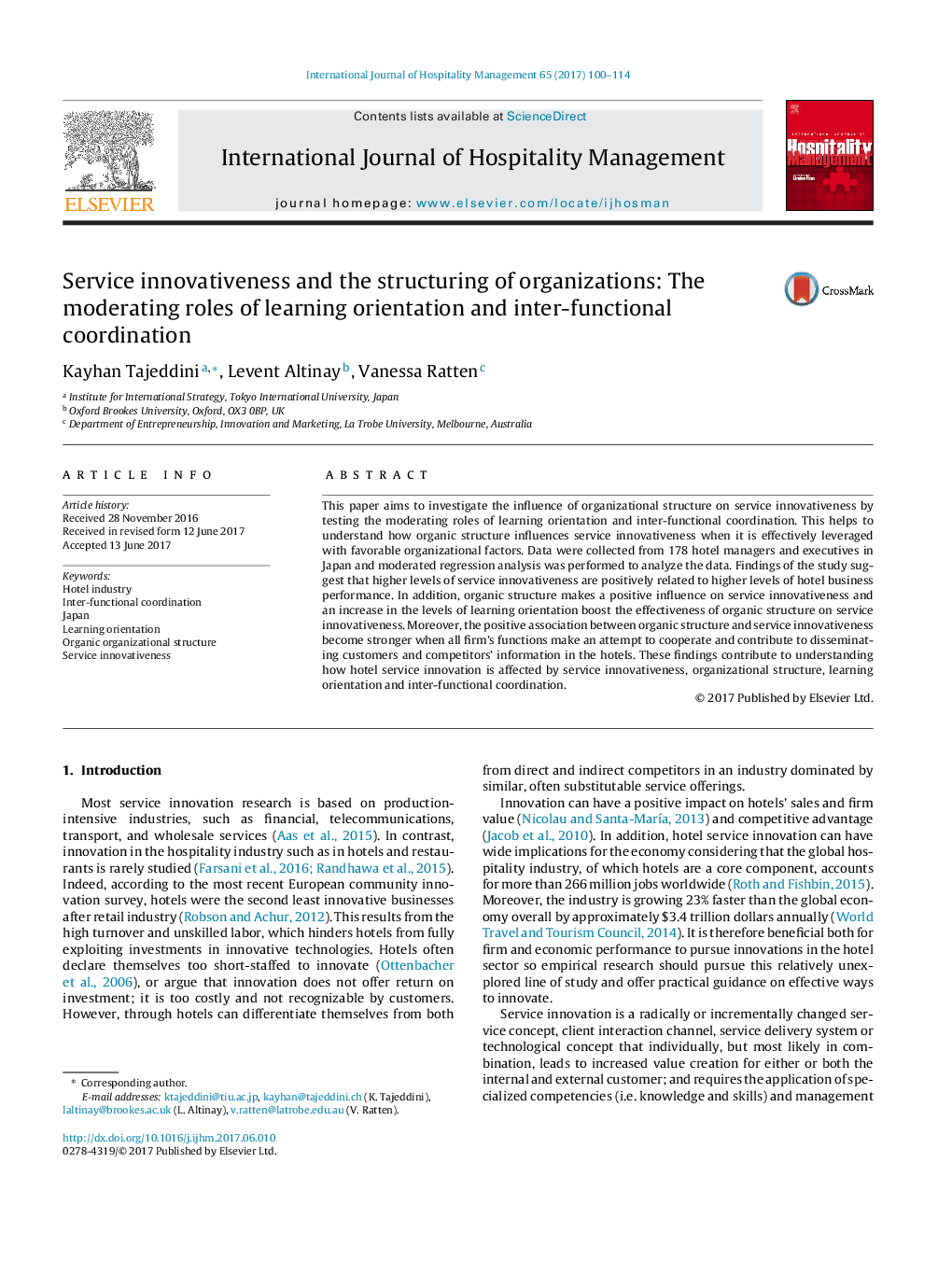ترجمه فارسی عنوان مقاله
نوآوری خدمات و ساختار سازمانها: اهداف مدرن جهت یادگیری و هماهنگی بین عملکردی
عنوان انگلیسی
Service innovativeness and the structuring of organizations: The moderating roles of learning orientation and inter-functional coordination
| کد مقاله | سال انتشار | تعداد صفحات مقاله انگلیسی |
|---|---|---|
| 87103 | 2017 | 15 صفحه PDF |
منبع

Publisher : Elsevier - Science Direct (الزویر - ساینس دایرکت)
Journal : International Journal of Hospitality Management, Volume 65, August 2017, Pages 100-114
ترجمه کلمات کلیدی
صنعت هتل، هماهنگی بین عملکردی، ژاپن، جهت گیری یادگیری، ساختار سازمانی ارگانیک، نوآوری خدمات،
کلمات کلیدی انگلیسی
Hotel industry; Inter-functional coordination; Japan; Learning orientation; Organic organizational structure; Service innovativeness;
ترجمه چکیده
هدف از این مقاله بررسی تأثیر ساختار سازمانی بر نوآوری خدمات با تست کردن نقش های مدرن جهت گیری یادگیری و هماهنگی بین عملکردی است. این به درک اینکه چگونه ساختار ارگانی بر نوآوری خدمات تأثیر می گذارد، به طور موثر با عوامل سازمانی مطلوب مورد استفاده قرار می گیرد. داده ها از 178 مدیر هتل و مدیر اجرائی در ژاپن جمع آوری شد و برای تجزیه و تحلیل داده ها از تجزیه و تحلیل رگرسیون مداوم استفاده شد. یافته های این مطالعه نشان می دهد که سطح بالاتری از نوآوری در خدمات، به سطوح بالاتری از عملکرد کسب و کار هتل مرتبط است. علاوه بر این، ساختار آلی تاثیر مثبتی بر نوآوری خدماتی دارد و افزایش سطح آموزش یادگیری باعث افزایش اثربخشی ساختار آلی در نوآوری خدمات می شود. علاوه بر این، رابطه مثبت بین ساختار ارگانیک و نوآوری خدمات زمانی قوی تر می شود که همه کارکردهای شرکت یک تلاش برای همکاری و مشارکت در انتشار مشتریان و رقبا را به وجود آورند؟ اطلاعات در هتل ها این یافته ها به درک اینکه چگونه نوآوری خدمات هتل تحت تأثیر نوآوری خدمات، ساختار سازمانی، جهت گیری یادگیری و هماهنگی بین عملکردی قرار می گیرد، کمک می کند.

